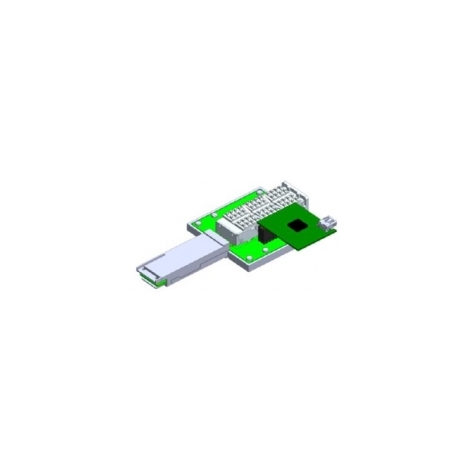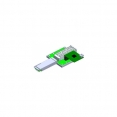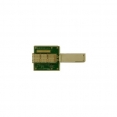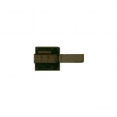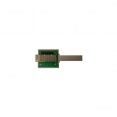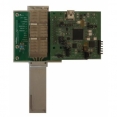ML-4066 Diagnostic Adapter
Key Features :
- All high speed signals are connected from the SFP28/QSFP28/QSFP-DD Plug to the front SFP28/QSFP28/QSFP-DD host connector with superior SI traces
- Low insertion loss PCB traces
- Uses RO4350 PCB material
- Power pins are accessible via pin headers and can be jumped to connect them to the plugged SFP28/QSFP28/QSFP-DD transceivers
- All low speed management signals are accessible via pin headers, and can be jumped to connect them to the plugged SFP transceiver
- I2C SCL and SDA signals accessible via pin headers or can be jumped to connect them to the plugged SFP28/QSFP28/QSFP-DD transceivers
- Ability to drive I2C from external pin headers, or connect I2C packet analyzer
- Ability to drive 3.3V from external source for power supply margining
- Ability to break 3.3V power from Host to module allowing voltage and current measurement
- Interface to connect SFF Analyzer board
- Push button for Reset Signal (QSFP28 & QSFP-DD only)
SFF Analyzer (optional) for ML-4066 adaptor use
Key features :
SFF Analyzer (optional) for ML-4066 adaptor use
Key features :
- Work with ML4066-QDD, ML4066-QSFP & ML-4066-SFP Diagnostic Adaptors as option
- USB Interface
- Windows based GUI and API Library
- Detection and measurement of host pull up + pull down resistors on low speed signals
- Host VCC rails sampling measurement
- VCC spectral noise analysis
- I2C Analyzer:
-
Bus Speed
-
ACK/ NACK Detection
-
Clock Stretching Analysis
Time Event Logging
- Functional tests:
- Control signals
- Configuration registers
- Ability to emulate optical module by loading identification registers with custom data
- Built with advanced PCB Material (Rogers/Megtron)
- I2C Terminated by microcontroller, I2C slave compliant with MSA
- Implements MSA Memory map and programmable new pages
- Memory map can be loaded to replicate optical module’s identification registers
- Ability to control/monitor all low speed signals
- Hot pluggable
- AC coupled high speed interface

